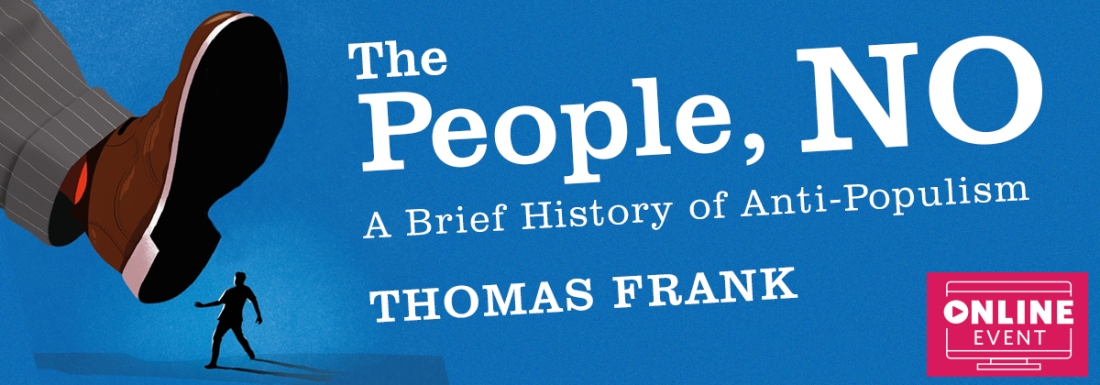Denunciations of populism had been commonplace for years but flowered into a full-blown panic in 2016, when commentators identified it as the force behind the unlikely presidential bid of celebrity billionaire Donald Trump. Then came Brexit. Populists were charged with misleading people about globalization, with disparaging elites, with subverting traditional institutions of government.
All a mistake, Thomas Frank says. In a conversation of his new book The People, No with UMKC's Whitney Terrell and Terrell's podcasting colleague, V.V. Ganeshananthan, the Kansas City-born author and political commentator argues that the real story of populism is one of enlightenment and liberation. It’s an account of American democracy itself, of its promise of a decent life for all. From the tumultuous 1890s, when the radical left-wing Populist Party fought Gilded Age plutocrats, to the reformist triumphs under Franklin Roosevelt and Harry Truman, Frank points out how much is owed to the populist ethos.
Our current president? Not a populist at all, Frank maintains, but a candidate who made promises of “populist-style reform, none of them sincere,” that sounded good enough to enough voters to secure his election by one of the least populist of institutions, the Electoral College.
Frank, a former columnist for the Wall Street Journal and Harper’s and founding editor of The Baffler, makes his sixth speaking appearance for the Library. Terrell is an associate professor of English at the University of Missouri-Kansas City, the author of three novels, and co-host of the Literary Hub podcast Fiction/Non/Fiction with Ganeshananthan. She is a fiction writer and journalist whose first novel Love Marriage was selected as a Washington Post World's Best of 2008.
Will be recorded as an installment of the Fiction/Non/Fiction podcast.
